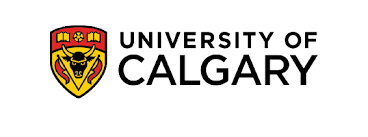Four UCalgary Postdocs Earn Prestigious Banting Fellowships for Outstanding Research
Four University of Calgary postdoctoral scholars have been selected to receive the prestigious Banting Postdoctoral Fellowship, Canada’s foremost federal grant for postdoctoral scholars.
The recipients this year are Dr. Audrey-Ann Deneault, PhD, Faculty of Arts; Dr. Wanhai Qin, PhD, Cumming School of Medicine (CSM); Dr. Faizan Khan, PhD, CSM; and Dr. Stephanie Ross, PhD, Faculty of Kinesiology.
“Our new Banting postdocs are seeking innovative solutions that have the potential to improve quality of life for Canadians at critical moments in their lives, whether as children, parents, or patients in our health-care system,” says Dr. William Ghali, vice-president (research). “They are pushing boundaries and pursuing new knowledge. We are exceptionally proud of these four scholars and look forward to all that they will achieve.”
The Banting Postdoctoral Fellowship stands as a significant Canadian award that recognizes exceptional researchers across various fields. Recipients are chosen for their remarkable academic achievements, potential for ground-breaking contributions, and research relevance. This fellowship empowers awardees to pursue their passions, making significant strides in their fields and fostering innovation within Canada’s research landscape.
Audrey-Ann Deneault
How Do Mothers and Fathers Foster Children’s Positive Development?
Through a series of studies, Deneault will explore the evolving landscape of parenting in the 21st century by investigating the roles of fathers, technology, and the pandemic’s impact on children’s socio-emotional development.
“This fellowship will allow me to pursue my research on how contextual factors influence parent-child relationships, and to continue my work of sharing this research with families throughout Canada,” says Deneault.
By shedding light on these crucial dynamics, Deneault’s research could reveal a more relevant and adaptable parenting model for modern families.
Deneault is a postdoctoral scholar in the lab of Dr. Sheri Madigan, PhD, Department of Psychology, Faculty of Arts
Wanhai Qin
The Multiple Factors that Affect the Biology of Alveolar Macrophages
Qin will be delving into the biology of alveolar macrophages, the immune cells residing in our lungs’ air sacs, to investigate ways to improve lung health.
“Our lungs are continuously exposed to the outer environment, so we breathe in germs and other hazards with every breath,” says Qin. “I will be able to examine how these environmental factors imprint respiratory immune system function and how the underlying mechanism(s) may be used to guide the development of novel therapeutic strategies for lung infections, one of the leading causes of death.”
Qin is a postdoctoral scholar in the lab of Dr. Paul Kubes, PhD, Department of Physiology and Pharmacology, Cumming School of Medicine
Faizan Khan
Finding the Balance Between Benefits and Harms of Stroke Thrombolysis with Recent Anticoagulant Use
For people experiencing an ischemic stroke, standard treatment called intravenous thrombolysis (IVT), which involves giving a clot-busting drug, greatly improves their outcomes. Some people with a stroke are also taking certain blood-thinning medications called direct oral anticoagulants (DOACs) at the time of their event. Both the use of IVT and DOACs increase a person’s risk of serious bleeding in the brain; this poses a crucial clinical dilemma of whether to administer IVT in people with stroke who are taking DOACs.
Khan aims to figure out the tradeoffs between clinical benefits and harms of IVT for stroke patients who have recently ingested a DOAC. His research could lead to better guidance for doctors, allowing them to make informed decisions about the best treatment strategy for stroke patients who take anticoagulants.
On receiving the Banting fellowship, Khan says it “is an honour to be recognized as an emerging leader in my field of blood and blood-vessel sciences. The award will allow me to explore the diverse research areas within my field, shifting from my previous work on the treatment of dangerous blood clots in the legs and lungs known as venous thromboembolism, to now focusing on treatment of life-threatening blood clots in the brain.”
Khan is a postdoctoral scholar in the lab of Dr. Michael Hill, MD, Department of Clinical Neuroscience, Cumming School of Medicine
Stephanie Ross
Novel Treatments to Improve Muscle Function and Mobility in Children with Cerebral Palsy
Ross’s research focuses on finding better ways to help children with cerebral palsy (CP), a condition caused by abnormal brain development or damage to the developing brain which contributes to difficulties in motor function. Says Ross on receiving the Banting fellowship: “[It] will allow me to focus on my training and to conduct research that will impact our understanding of how to improve the mobility and lives of kids living with cerebral palsy.”
Many children with CP have stiff muscles that make it hard for them to move properly. Current treatments involve surgeries and injections, but they aren’t ideal. Ross wants to change that.
Her goal is to discover new ways to treat muscle problems in children with CP without using surgery or invasive procedures. She will study muscle samples from children with CP and use computer models to understand how these muscles work. By doing this, Ross aims to identify new ways to improve muscle function and help children move better.

